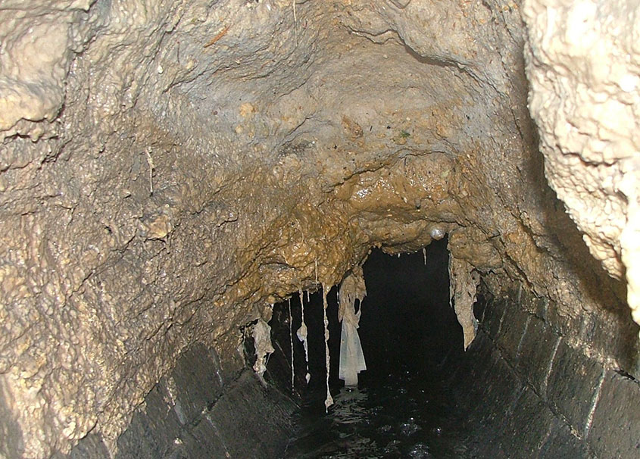Fatbergs in our sewers – are modern culinary habits to blame?
05/02/2016

Food is crucial in our life. Since the Neolithic period, our eating habits have dramatically evolved. Early man lived a nomadic life, hunting and picking fruits and vegetables. The revolution in our ancestors’ lifestyles came from sedentarisation. We learnt to master our food resources by farming and keeping cattle. However, it took us centuries to develop the food production systems that we have today. For a long period before “modern times”, not a lot of progress was made. The Industrial Revolution played a major role in our habits. Rural exodus and urban expansion were the starting point of the “triumph” of food industrialisation. Over the last century, the globalisation of dietary models, like that of the US, has strongly influenced culinary cultures. The evolution of our sustenance preferences and eating habits can easily be explained by history. But what about the influence it has had and continues to have on our environment? FOG is one of the witnesses of this evolution. Never heard about it? FOG stands for fats, oils, and grease. In a nutshell, these are all by-products of food preparation and cooking processes and are generated by domestic, commercial and industrial activities. When these products enter the drainage system and are mixed with sewage they tend to agglomerate and generate a massive solid block – now more commonly referred to as a “fatberg”.
Over time, these fatbergs grow and grow and eventually block pipes which may result in turn in sewage overflows or burst pipes. You can easily imagine how serious it is when you have a closer look at a fatberg! It is estimated that 75% of the 200,000 sewer blockages which occur in the UK every year are due to FOG. Clearing these blockages comes with a certain cost evaluated in millions of pounds per year. Water companies have initated a range of behaviour-change campaigns to try and prevent individuals and businesses washing fats, oil and grease down the drain. Some have seen significant reductions but huge amounts of FOG still get into the system. This FOG then generates downstream issues when it ends up at a wastewater treatment plant. Typically, a conventional sewage treatment works won’t be able to deal with these products in such a concentrated form. Consequently, treatment efficiency, as well as the assets’ lifetime, are reduced and in turn, operating and maintenance costs are increased.
So now, you are (probably) wondering, “wait a second, so how can we deal with this?” This is actually a very difficult challenge, since there is no universally effective way of managing and removing FOG. Several approaches have been considered, but so far none has proven to be 100% effective. My research project, hosted at Cranfield University and sponsored by Thames Water Utilities, seeks to solve this problem by better understanding the relative efficacy of FOG removal and recovery processes.
And why am I suited for this task? Well, I studied Biological Engineering in France, and for my final year, I attended a double degree course at Cranfield University in Environmental Engineering. I have always been attracted to research and hope that this project provides me with an opportunity to not only become a researcher but also make a (big) difference to people’s lives and livelihoods. So here I am, at the beginning of a long and promising journey!
This blog was first published on the STREAM IDC website. Find out more about doctoral research projects funded through STREAM.
Categories & Tags:
Leave a comment on this post:
You might also like…
Commonwealth Scholarships play a critical role in developing sustainability and leadership in Africa
Q&A with Evah Mosetlhane, Sustainability MSc, Commonwealth Distance Learning Scholar What inspired you to pursue the Sustainability MSc at Cranfield? I was inspired to pursue the Sustainability MSc at Cranfield because of the university’s ...
How do I reference a thesis… in the NLM style?
You may be including theses within your research. When you do so you need to treat them in the same way as content taken from any other source, by providing both a citation and a ...
Introducing… Bloomberg Trade Flows
Are you interested in world trade flows? Would it be useful to know which nations are your country's major trading partners? If so, the Bloomberg terminal has a rather nifty function where you can view ...
Cranfield alumni voyage to the International Space Station
Seeing our alumni reach the International Space Station (ISS) has a ripple effect that extends far beyond the space sector. For school students questioning whether science is “for them”, for undergraduates weighing their next ...
From classroom to cockpit: What’s next after Cranfield
The Air Transport Management MSc isn’t just about learning theory — it’s about preparing for a career in the aviation industry. Adit shares his dream job, insights from classmates, and advice for prospective students. ...
Setting up a shared group folder in a reference manager
Many of our students are now busy working on their group projects. One easy way to share references amongst a group is to set up group folders in a reference manager like Mendeley or Zotero. ...






